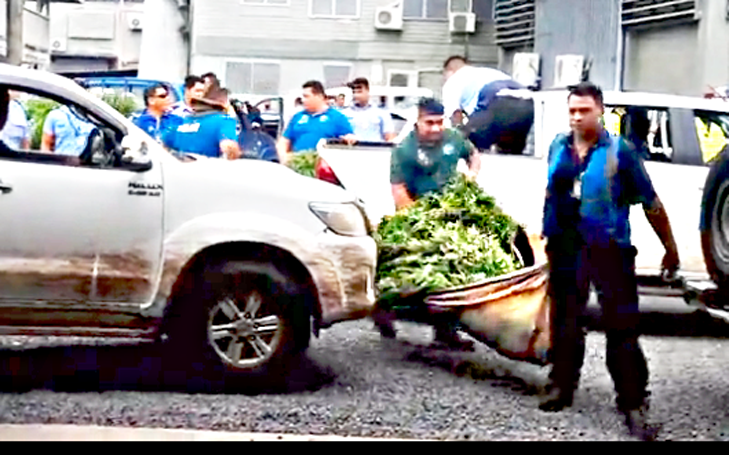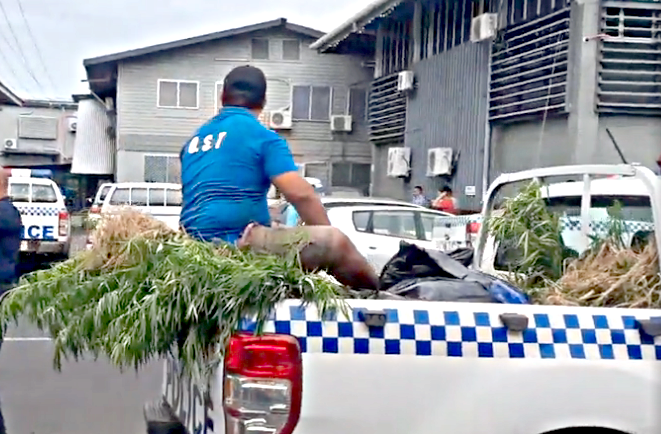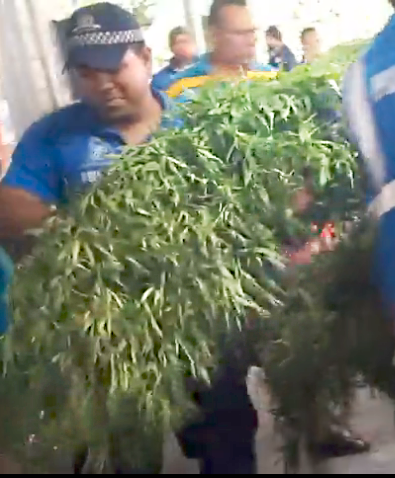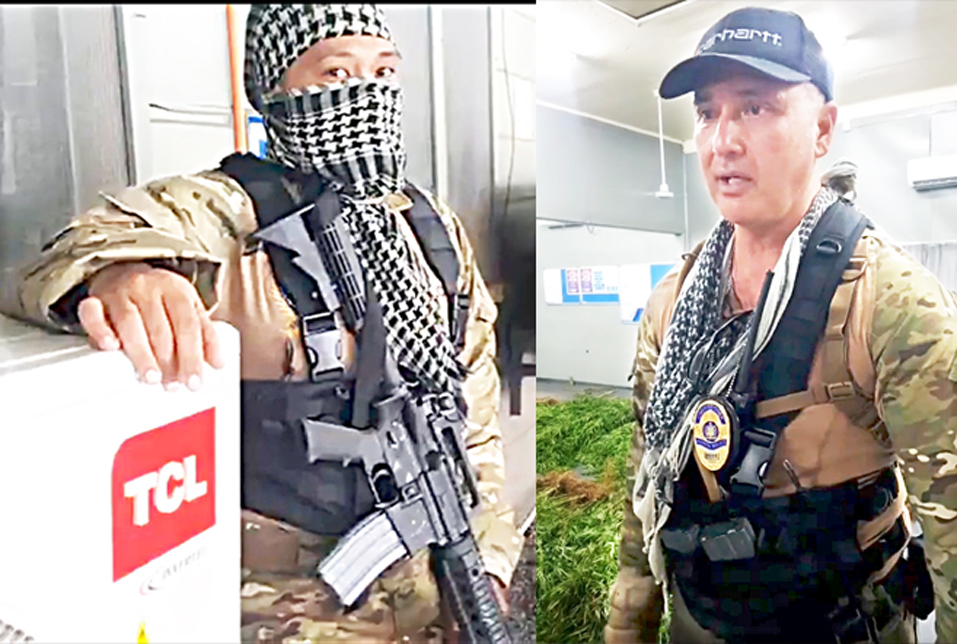By Staff Writer



Another police marijuana farm raid last week has added more fears by the Commissioner of Police to the growing illegal drug problem in Samoa.
Commissioner Fuiavailili worried that more and more illegal drug arrests are being made and not just from homegrown marijuana.
Drugs like methamphetamine are also coming into the country at an increasing rate.
“Police confiscated very recently 229 grams of meth and more last October, so the problem is going up not down,” the Commissioner told Newsline.
Fuiavailili made the comments while at the time supervising the recent burning of a truckload of dried up marijuana plants at the Tafaigata landfill.
The illegal plants were stored as evidence from several police village raids of Faleatiu farms that went on for about a year.
Setting them on fire has become a ritual where the local media is invited to watch and report on extensively.
“The public can see the plants destroyed while at the same time send out a warning to growers that they will be arrested and charged for serious criminal drug offences.”
Faleatiu was again the target of the police raid last week.
Three arrests were made with illegal plants yanked by the roots from the raid that filled a large police room.
Around 4 thousand marijuana plants were uprooted from secret farm locations further inland at Faleatiu and Satapuala.
Commissioner Fuavailili was included in the police raid party of 60 male and female officers who travelled in a convoy of 14 cars, mostly pick up trucks.
Most of the officers were seen armed with automatic machine guns and bulletproof vests.
Some wore head covers similar to normal wear seen in many of the troubled spots in the world where armed terrorist conflicts are common.
The Faleatiu and Satapuala villages have become the established heartland for illegal marijuana farming in Samoa based on repeated police raids in the area.
But Commissioner Fuavailili is grateful to the traditional leadership of the village chiefs and orators for their support of the police drug work.
“We wish to thank them for the support they have shown throughout the year.”
Fuiavailili could also tell from the size of the plants that the intended harvest was set for the festive season starting this month, December.
The police raid was timed according to this anticipated harvesting by the growers.
“ Last year in November more than 10 thousand plants were uprooted from the same farm areas but it appears to have dropped to only 4 thousand this year.
“We also noted that there are not as many illegal plants as before in the area, so we suspect there may have been a switch to new locations.”
The use of flying drones to survey the area from the sky has increased significantly the success of the police strike rate in recent times.
A demonstration of hovering drones used for surveillance was made inside the room where the illegal plants from the raid were placed.
The Commissioner played down the high success rate of police illegal drug raids but the problem is a big one.
“Illegal drugs are not just an issue for the police to handle, it is a community responsibility as well.
“Cops are not enough to solve the problem, the support of the whole country, ‘ali’i and faipule’, church leaders, families, parents…everyone in the community must play a role.”
Fuiavailili also wants to see the Ministry of Education take an active part warning students of the danger of drugs.
The Ministry of Health is also called in to counsel against drug abuse.
Drug crimes are also blamed for clogging up the courts and every legal conviction ends up filling up the prisons.
“We need to educate our people with a change in mind set on the unacceptable use of illegal drugs and the rules to protect against it.”
The Commissioner warned that crime statistics of the last three (3) years has shown the rate going up.
He said that part of the police work is to gauge from the statistics what is going on and how important it is to work smart.
“Illegal drugs is just part of the bigger scale of things we have to work on to prevent crime.”
Fuiavailili believes that limited resources are a setback for everyone but working together and setting up bigger networks is working smart.
The example of working at the national, regional and international levels were highly encouraged.


